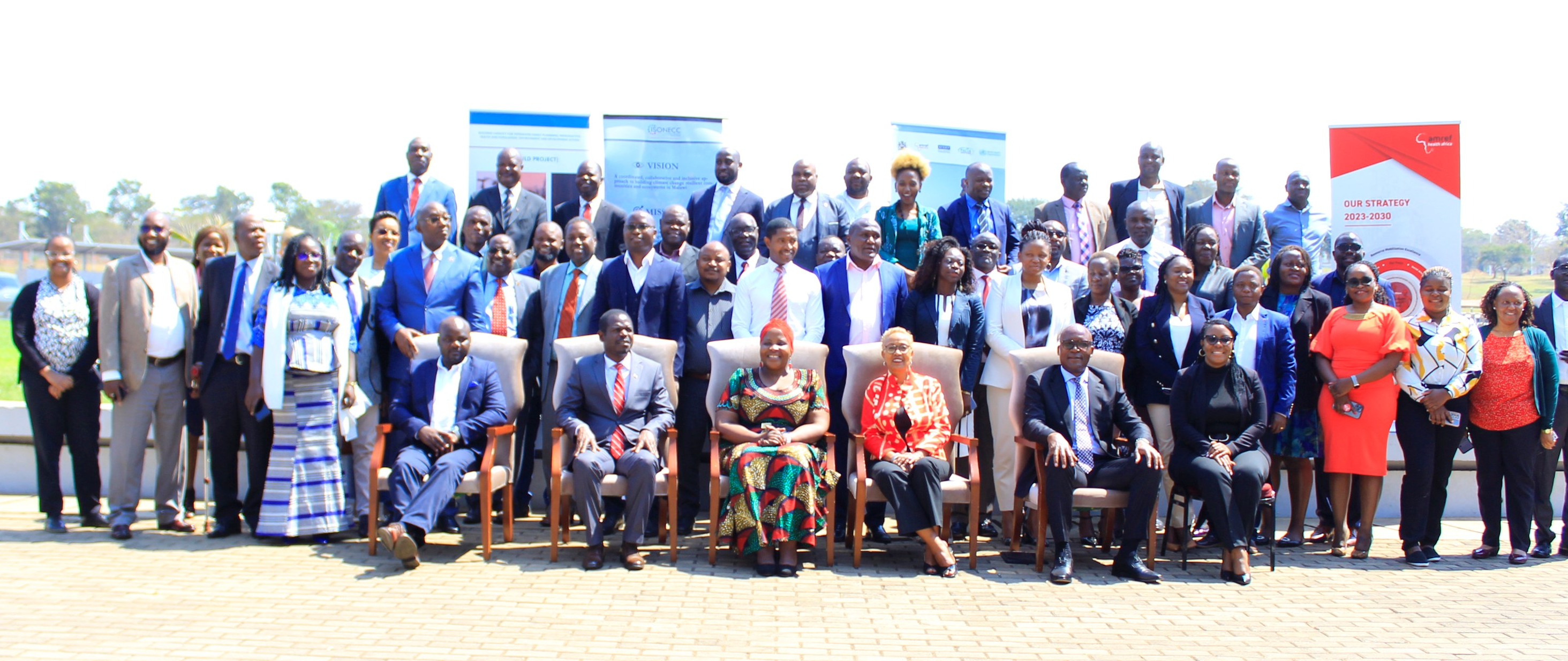News

Lilongwe, Malawi. 22-24 August 2023: The USAID-funded Building Capacity for Integrated Family Planning/Reproductive Health and Population, Environment and Development Action (BUILD), a consortium of five different organizations, namely, the Pan African Climate Justice Alliance, the Leadership for Environment and Development Southern and Eastern Africa, the FHI360, Path Foundation Philippines and the African Institute for Development Policy (AFIDEP), jointly with the Amref Health organized first Regional Workshop on Health and Climate Change in Lilongwe, Malawi..
Running from 22nd to 24th August 2023, the Workshop aimed at developing a shared common position that will mainstream issues of health into the climate change discussions within the UN Framework Convention on Climate Change (UNFCCC) processes.
According to Clive Mutunga, the Director of the BUILD Project, climate change impacts health through increased vulnerability to diseases and malnutrition and exacerbates inequalities.
“Nevertheless, the health dimensions of Climate change have conspicuously been absent in key UNFCCC discussion processes.”
Mutunga added that this might among others mean that players in the health sectors have not engaged enough.
“This calls upon players to demonstrate the importance of health in the national economy and that planners and financiers be made to see it thus to begin prioritizing health,” he said.
Dr Eliya Zulu, the Executive Director of AFIDEP cautioned against restricting discussions of health dimensions in climate change to only communicable diseases such as malaria or cholera.
He implored the participants to widen the horizon and include reproductive health. “Population growth might defeat all other climate actions,” he said.
Agreeing with the sentiments of Dr. Zulu, Prof Sosten Chiwotha, the Executive Director of Leadership in Environment and Development (LEAD) for Southern and Eastern Africa noted that environmental degradation creates vulnerability to climate change and this degradation comes because of population growth.
He added that when you have high population growth, it means people settle in areas that are fragile because in normal places they cannot settle or grow crops because they are already occupied.
Prof Sosten said whenever there is extreme weather like flush floods, it is in those fragile areas where people stay because of high population growth and urbanization leading to exposure to disasters.
“People must be empowered to begin seeing the interconnectedness of population, environment, and health in development. This is what will fully bring in resilience,” Chiwotha said.
Dr Mithika Mwenda, the Executive Director of the Pan African Climate Justice Alliance said the inaugural regional workshop was the beginning of a journey that might eventually see health issues mainstreamed into the clamour for climate justice.
COP28 is poised to provide the first side event on health, thereby presenting opportunities to bring together health considerations in climate change policymaking and climate action.
The Malawi conference received financial support from the Welcome Trust.
Related Posts





